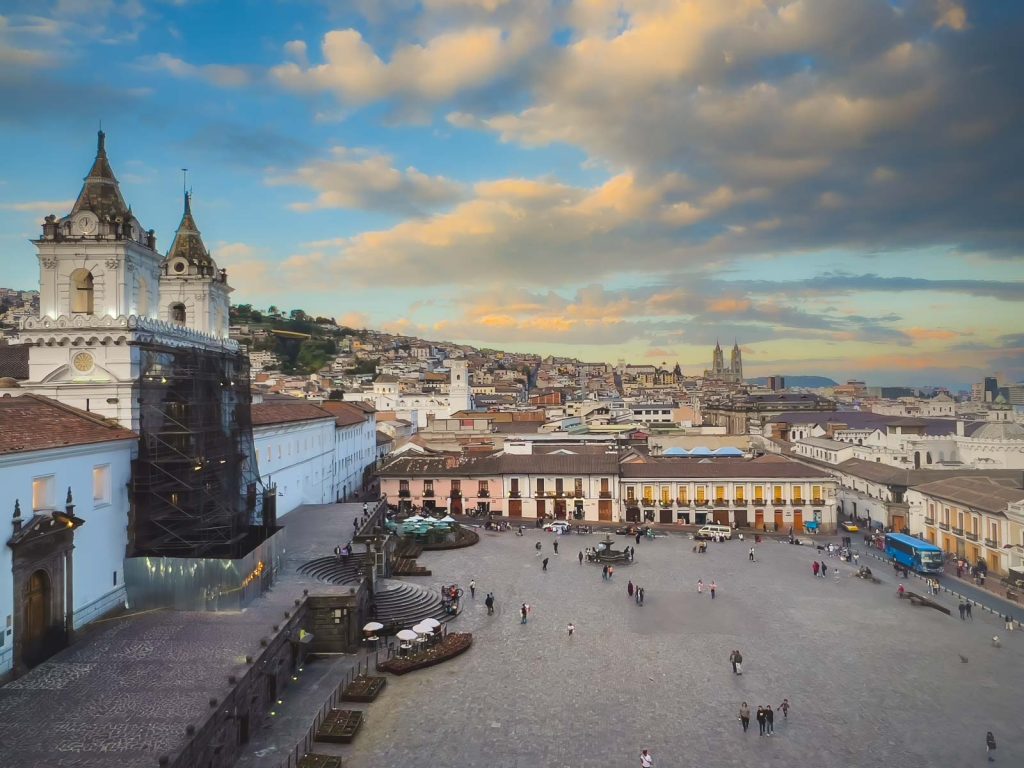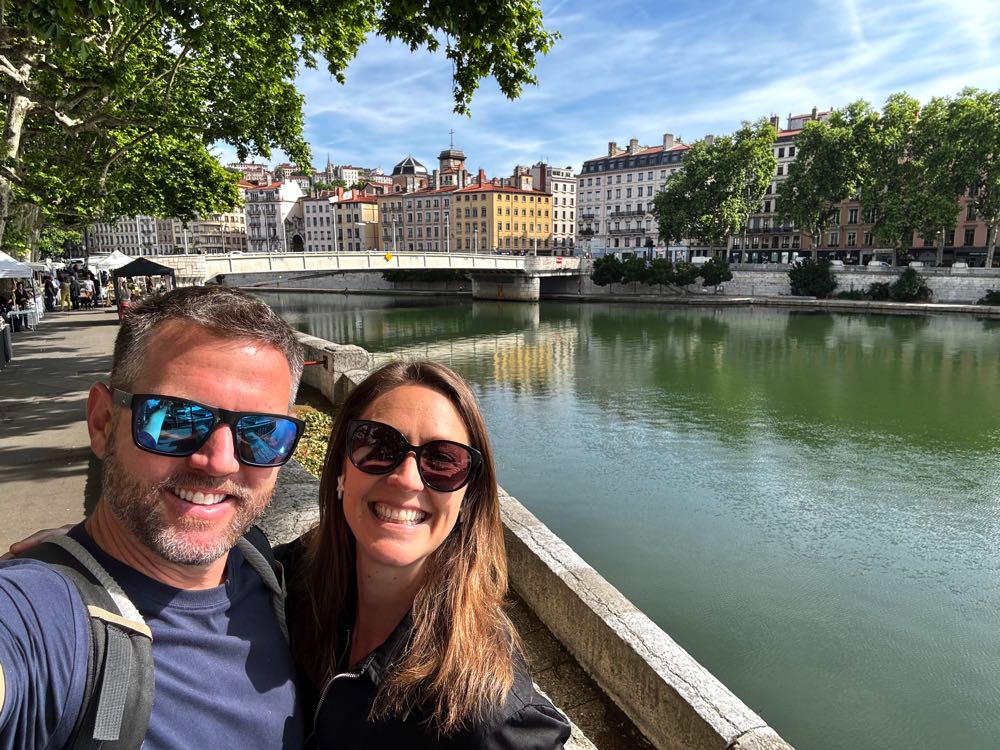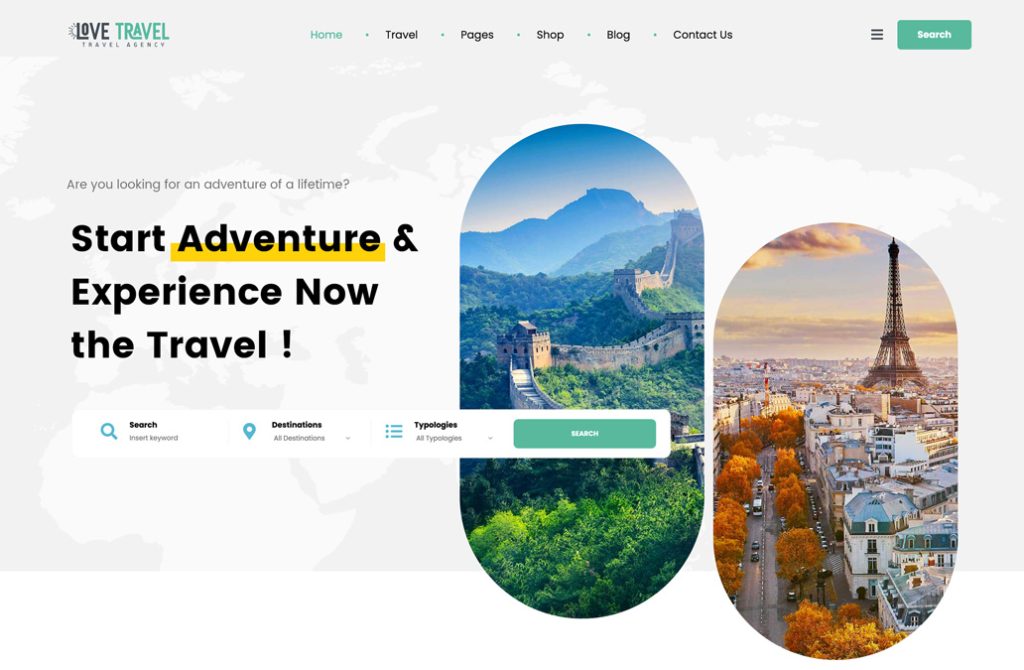We arrived in Ecuador a week after President Daniel Noboa declared a state of Emergency. As I write this article today about the safety situation in Ecuador, I have traveled from Quito to the Galapagos, climbed up to the Cotopaxi volcano, and visited small villages. We are currently exploring the Mashpi Jungle’s cloud forest at Mashpi Lodge. We have felt safe and welcomed during our two weeks in Ecuador. However, I understand many people wonder if it is safe to travel to Ecuador. We will answer the burning question that everyone is asking, drawing from our first-hand experiences in the country. So, Is Ecuador Safe?
Is Ecuador Safe to Visit for Tourists?

On January 8, 2024, President Noboa enacted a nationwide state of emergency. It is in place until March 8, 2024. Ecuador has seen violence escalate in recent years thanks to being located between Colombia and Peru, which are two of the top cocaine producers in the world. However, most violence is targetted and between gangs and cartels. If tourists take the appropriate precautions and avoid the high crime zones, they can have a wonderful experience in Ecuador.
Short Summary
- The State of Emergency in Ecuador – What you Need to know.
- Ecuador is generally safe for travelers, but take necessary precautions and check government website travel alerts into consideration.
- Follow safety tips like avoiding walking alone at night and visiting well-known establishments and tourist destinations.
- Familiarize yourself with local laws, use reputable transportation services, and opt for filtered water when traveling in Ecuador.
the State of Emergency in Ecuador
Many travelers have been asking us, “Is Ecuador safe?” The answer is yes, but some areas should be avoided, and others require extra vigilance. In this article, we will dissect current safety data, delve into regional concerns, and offer practical tips for safeguarding your journey in Ecuador—helping you to understand where, when, and how to travel safely.
Currently, Ecuador remains under an official state of emergency until March 2024. The violence began after gang leader José Adolfo (Fito) Macías Villamar escaped from prison just before he was to be transferred to a maximum security facility. The prison system in Ecuador is overcrowded and violent. Guards have little control over the inmates who run their networks from within in relative comfort. Many leaders run their transnational criminal groups, cartels, and gangs from the inside.
With the escape of Macias, violence erupted within the system, and prisoners took guards hostage. This was to protest the government’s efforts to crack down on their criminal activities in a show of strength.
Violence also erupted with explosions and kidnappings of police officers at the beginning of January. But things seem to have settled down. And now that you know about the situation in Ecuador, let’s continue to look at the impact on tourism in Ecuador.
Ecuador Travel Advisories
Ecuador’s current state of emergency is something to be aware of, but it shouldn’t deter you from traveling to tourist areas such as the Galapagos, Mashpi, the Amazon region, or Quito. The government is doing its best to control the unrest and maintain safety. It seems to be working as the crime rate index has fallen dramatically since emergency services were dispatched. Things can change on short notice, so you should always check safety and security before traveling.
As of February 2, 2024, the US State Department updated their travel warnings for Ecuador to a Level 2: Exercise Increased Caution.
Canada currently has a warning of Exercise a high degree of caution with regional advisories.
The United States and Canadian governments say to avoid Guayaquil north of Portete de Tarquí Avenue due to crime, All areas south of Esmeraldas city in Esmeraldas province, El Oro province outside the cities of Huaquillas and Arenillas, The provinces of Sucumbíos, Manabí, Santa Elena, and Santo Domingo due to crime and Los Rios province outside the cities of Quevedo, Quinsaloma, and Pueblo Viejo,. Chances are, the average traveler will not be traveling to these areas.
Some specific areas are problematic due to crime and kidnapping, and tourists should avoid these locations. You can check your local travel advisories for more information. We could list them all, but there are plenty of no-go zones, including coastal areas of Esmeraldas Province and the areas south of Esmeraldas City, plus the borders of Colombia and Peru.
The United States, Canada, Ireland, and Australia have recently issued travel advisories for Ecuador, advising their citizens to exercise increased caution due to safety concerns. These governments say to exercise extreme caution and stay informed about the latest safety information.
Border Crossings
Tourists shouldn’t need to worry about land border crossings as most will be flying into Ecuador. However, the Ecuadorian government suggests being extra careful and avoiding border areas with high crime rates, such as the Peruvian border and Colombia border. These zones have a high risk of being victims of crime as they are zones for transnational criminal groups and local gangs. For up-to-date information, see the Canadian and United States Government travel advisories.
Before any journey, including one to Ecuador, it is good to consult the travel advisories issued by your government. You can then make your own informed opinion. Bear in mind that advisories can differ depending on the country issuing them.
When reading these warnings, you will notice that governments have issued warnings for specific areas due to civil unrest, crime, and kidnapping. But what areas pose the most risk, and what precautions should you take? Most tourists will be traveling to areas that are considered safe, so let’s delve into the current government warnings and specific areas of concern.
Are the Galapagos Islands Safe?

Most people travel to Ecuador to visit the Galápagos Islands. The UNESCO World Heritage Site is one of Ecuador’s premier national parks celebrated for its unique endemic wildlife. We traveled with Hurtigruten Expeditions just a couple of weeks after the state of emergency was issued.
Hurtigruten Expeditions gave everyone the option to cancel prior to departure, but half of the people chose to continue. I am glad that we did! It was a wonderful trip, and we felt completely safe. Cruising through the national park felt like a world away from the news we saw on TV.
The Galápagos Islands are considered safe and are far away from the gang violence and armed robberies that we heard of in the largest city in Ecuador, Guayaquil.
But take note: When booking a trip to Ecuador and the Galapagos, book with reputable tour operators like Hurtigruten Expeditions, who prioritize responsible travel and safety. We traveled throughout the country with private guides and expert drivers who knew which areas were safe and which areas to avoid.
Emergency Services in Remote Locations
Despite the Galapagos Islands’ relative safety, preparing for potential emergencies is essential. The availability of health services might be limited, but air ambulances can reach hard-to-reach places. The tour company required us to have travel insurance that included air transfer should anything happen in the Galapagos. The Galapagos is considered a very remote region in the middle of the Pacific Ocean, so if you are in poor health, you may want to reconsider travel until you are better.
We had a doctor on our ship with Hurtigruten for emergencies 24/7, but if there was an emergency, we would need air ambulance transport. Time is often of the essence during emergencies, and response times to remote locations can vary. That said, several people on our tour were in good health in their mid-70s, and there were no issues. But we always recommend good travel insurance, even if your tour operator doesn’t require it.
Read more about Travel Insurance
How Does the State of Emergency in Ecuador affect tourists

During our travels to Ecuador, we didn’t feel the effects of the State of Emergency other than an increased police presence in the capital city of Quito. In truth, having more local authorities patrolling the streets made us feel even safer. We didn’t worry as much about petty crime since an officer or security was on every corner.
That is not to say we didn’t keep an eye on our valuables when walking through the city streets or markets; we just felt a heightened sense of peace of mind. However, we didn’t stay out past 9 pm and had a guide for our travels outside the city center.
There is an ongoing nationwide curfew in Ecuador until March, with different levels for specific areas. Cantons in the “high” level have a curfew from 12 a.m. to 5 a.m. Cantons in the “medium” level have a curfew from 2:00 a.m. to 5 a.m. Cantons in the “low” level have no curfew in place. Check this website for the specific area you are visiting in Ecuador.
Crime Rates in Ecuador
The homicide rate in Ecuador rose from 5 to 46 per 100,000 inhabitants between 2017 and 2023. When talking to local officials, the crime rate has dropped significantly since the state of emergency was enacted and we were told it is down to about 14. – 20 homicides per 100,000. To give you a reference, the crime rate in New Orleans is 70 per 100,000 residents.
Most crimes revolve around illegal drugs, drug-trafficking turf wars, and gang-related violence. Tourists are rarely the target. Avoid buying drugs, don’t stay out until the wee hours of the morning, and limit your alcohol consumption off the resort. Following common sense safety measures can lower your chances of any incident.
Safety in Quito

Quito is a beautiful UNESCO World Heritage City that is usually the first stop on anyone’s Ecuador adventure. We stayed right in the heart of downtown and felt very safe. There was security at our hotel and plenty of police and security in the tourist areas.
We used a private guide to take a city tour, but after our tour was over, we walked through the streets where people smiled and said hello, helped us when purchasing at the pharmacy, and talked to us while shopping in the market.
You must remember that the state of emergency is from gang-related violence. The people of Ecuador are very friendly and just as upset about the situation as Americans are when there is a mass shooting at a mall or school. The incidents are localized and targeted. However, there is a chance (just like crimes in all cities around the world) that tourists could get caught in the crossfire.
Tourists visiting Quito are advised to stick to the following neighborhoods, known for their relative safety: La Mariscal, Historic Center Quito, La Carolina, La Floresta, Bellavista, La Ronda
While these areas are generally safe, it’s recommended to exercise caution, especially late at night around Plaza Foch in La Mariscal, a popular nightlife spot.
Petty Theft Hotspots
Armed robbery is a risk in Ecuador, but petty theft is the most common challenge tourists face in Ecuador. Tourist hotspots like Quito are often targeted by thieves who employ various tactics to distract and steal from unsuspecting victims. These incidents usually involve the theft of wallets, smartphones, cameras, and bags.
To avoid becoming a victim of petty theft, it’s recommended to leave your valuable items at home. Secure items like cameras with a strap around your neck, carry an over-the-shoulder bag that zips up, or use a money belt. We always maintain awareness of our surroundings, especially in crowded areas.
Express Kidnappings
Express kidnappings have become common, with gangs taking victims to an ATM, forcing them to make a cash withdrawal or holding them for ransom. These are usually locals, however some foreigners have been reported. We suggest not carrying your bank card if you are out for a walk and staying in the usual tourist locations. Use official taxis when traveling and hire an organized tour for day trips.
Specific Areas of Concern
Elevated crime rates have been reported in cities like Guayaquil, Quito, Cuenca, and provinces including Esmeraldas, Guayas, and Carchi. The criminal activities in these areas span from financial crimes and violent incidents to drug trafficking and organized crime.
The risk factors in these areas include civil unrest, kidnapping, instability, and issues related to gangs and drug trafficking. Notably, the coastal city of Guayaquil, certain parts of Quito, and border regions with Colombia and Peru have been identified as high-risk areas.
Our guide told us where not to go in Quito, so we stayed in the tourist areas. As is the case in many cities, if you travel to the wrong part of town, there is a chance of being a victim of a crime. By staying in well-travelled areas and not staying out until the wee hours of the morning, traveling in Ecuador remains quite safe for tourists.
Assessing the Safety Landscape in Ecuador
Major cities have witnessed an increase in crime rates, with the rate in 2019 being a significant 17.16% higher than in 2018. However, since the state of emergency was implemented this rate has dropped significantly.
It is important to exercise extreme caution and stay informed about the latest safety information about the areas you are visiting. Some urban areas, particularly larger cities, have seen a rise in civil unrest, crime, and kidnapping incidents.
In contrast, rural areas are generally considered safer. However, it’s essential to stay alert as organized crime groups sometimes exert more influence in rural regions than the state itself. When taking a day trip, hire an expired guide or organized tour as they will know which small towns and rural areas are safe to visit.
Impact of National Police and Military Presence

The National Police of Ecuador are working hard to maintain public order and safety under the control of the Ministry of Government. They patrol major highways and provide safety guidelines. We went through checkpoints when leaving the city. The measures have effectively deterred crime and protected the tourism sector.
The Ecuadorian military works alongside civil law enforcement to reinforce security. This is helping to ensure the vast majority of travelers have a safe and enjoyable experience. But like all extra security measures, travelers are still advised to exercise increased caution and follow safety guidelines provided by the police.
Crime Rates and Their Impact on Tourists
Although Ecuador is typically safe for tourists, crime rates may affect your travel experience. Being well-informed about the types of crimes that primarily target tourists can help you adequately prepare for your trip.
Let’s explore the hotspots for petty theft, the prevalence of violent crime, armed robbery, and kidnappings in Ecuador and the safety measures in place at tourist destinations like the Galapagos, Quito, and Cotopaxi National Park.
Prevalence of Violent Crime
While petty theft is a common issue, violent crime is less frequent but can still occur, especially in certain provinces. The rate of violent crime in Ecuador has increased significantly in recent years, with the homicide rate rising by nearly 500% since 2016. The most prevalent violent crimes include murder, with provinces such as Guayas, Los Ríos, Manabí, El Oro, Santa Elena, and Pichincha reporting the highest rates.
Despite these alarming statistics, it’s important to remember that most visits to Ecuador are trouble-free. By staying informed, avoiding high-risk areas, and following safety recommendations from local authorities, you can substantially reduce your risk of encountering violent crime during your visit.
Staying Informed Through Local Media
Staying informed about local news and safety updates is vital for a safe travel experience. Checking local news websites like El Universo and Metro Ecuador or following the Ministry of Tourism’s official updates can help you stay updated on the latest safety situations.
In case of emergencies, Ecuador has a national safety and emergency alert system called the Unified Emergency and Disaster System (SISMED) that coordinates emergency response and sends out alerts during disasters.
Downloading useful apps like the Full Official Mobile Travel Guide to Quito Ecuador and EasyTaxi can also help you navigate the country safely and efficiently.
Partnering with Experienced Guides for Adventure Tourism
Adventure activities in Ecuador offer a thrilling way to explore the country’s diverse landscapes. We booked our trip to Ecuador with Hurtigruten and felt very safe as they monitored the security situation
If you are not traveling with a reputable tour operator, it’s essential to choose experienced guides to ensure safety and proper precautions during these activities. An ASEGUIM-certified guide or one with a National Tourism Guide Degree from ITHI can provide a safe and enriching adventure tourism experience.
Beyond safety, experienced guides offer a more immersive travel experience, sharing insights into local culture and history. They promote responsible travel, protect the environment, and provide a chance to connect with fellow adventurers. Remember, it’s not just about the destination, but also about enjoying the journey!
Transportation Safety
Transportation is a vital aspect of any travel experience, and in Ecuador, it’s no different. Whether you’re using public transportation, taxis, or domestic flights, being aware of safety considerations is key. However, public transport in Ecuador, especially buses, has seen its share of safety issues, contributing to 7% of road crashes in 2016.
Quite recently opened a new subway system that the locals are very round of and is a good option for getting to and from the Old City.
To stay safe while traveling, it’s recommended to:
- Travel during the day
- Pay extra for direct buses
- Stay alert in areas like bus stations where public transportation-related crimes like pickpocketing and robbery are known to occur
Tap Water Safety
Ecuador’s diverse culinary scene is a delight for foodies, but caution is advised when indulging in local food and drinks. Here are some safety tips to keep in mind.
The water is not potable in Ecuador. When drinking the water it is best to stick with bottled water or to use a steri-pen or other type of water purifier like a LifeStraw. High-end hotels and Galapagos Cruises will have filtered water for you to drink.
- Keep an eye on your drink at all times and never leave it unattended.
- Never accept food or drinks from strangers.
- Be cautious of spiked food and drinks, as they can lead to theft or assault.
Street food is a popular part of Ecuador’s food culture, but as with any destination, choosing vendors wisely can help prevent foodborne illnesses. Sticking to bottled water and avoiding undercooked food can also help ensure a safe and enjoyable culinary journey. By following these tips, you can enjoy the delicious cuisine of Ecuador while staying safe.
Health and Medical Safety in Ecuador
Health and medical safety is a significant consideration when traveling. Thankfully, Ecuador’s healthcare system is highly efficient and affordable, ranking 20th among advanced economies for efficiency. Major hospitals and health centers, located in cities like Guayaquil and Quito, provide high-quality care. Prescriptions are readily available in Ecuador.
However, health emergencies like animal bites or contracting diseases like yellow fever and malaria can occur, especially in rural or remote areas. Therefore, it’s crucial to get appropriate vaccinations before your trip. After all, prevention is the best medicine! Plus, make sure you have travel insurance which we mentioned above.
Altitude Sickness
Quito is the highest capital city in the world and you will feel the effects of Altitude sickness when you fly into the city. Make sure to drink plenty of water and take it easy when you first arrive. When climbing volcanos such as Cotopaxi, walk slowly and drink plenty of water. Avoid alcohol until you are accustomed to the altitude.
Is Ecuador Safe for Solo Travelers
For solo travelers, Ecuador can be a rewarding destination with a little extra caution and planning. By staying aware of your surroundings, avoiding nighttime travel, and sticking to populated areas, you can enjoy a safe trip. We always recommend hiring an experienced guide or joining an organized tour. Other passengers on our ship were traveling solo and found it very fulfilling.
There have been incidents of sexual assault against foreign women, bot make sure to hire an experienced guide or travel with a reputable organized tour. When choosing accommodations make sure to book a hotel that has security.
In conclusion, while Ecuador does face some safety challenges, it remains a captivating destination for travelers. By staying informed, exercising caution, and adhering to safety recommendations, you can enjoy everything this diverse country has to offer.
From the historical streets of Quito to the unique wildlife of the Galapagos Islands, Ecuador promises an unforgettable adventure, provided you stay safe and alert. So, are you ready to embark on your Ecuadorian adventure?
Is Peru safer than Ecuador?
Ecuador is considered one of the safest South American countries, with a similar safety level to Peru.
Is Ecuador worth going to?
Yes, Ecuador is definitely worth visiting, as it has much more to offer than just the Galápagos Islands. Consider staying for 10 days to two weeks to explore its main attractions.
Is Ecuador safe to travel to 2024?
Ecuador is generally safe to travel to, but the U.S. State Department labels certain areas as Level 3 (reconsider travel) and Level 4 (do not travel). It’s important to stay informed about the specific regions when planning a trip there.
Are the Galapagos Islands safe for tourists?
Yes, the Galapagos Islands are generally safe for tourists, but it’s important to choose reputable tour operators and be prepared for any potential emergencies.
When traveling to Ecuador, ensure your passport if valid for at least 6 months after the date you are expected to leave Ecuador.
Ecuador is an amazing tourist destination, with jungles, wildlife, adventure tours, and luxury accommodations offering a variety of experiences for all types of travel. You can have a secure holiday when the appropriate steps and precautions are taken. Staying up-to-date on safety updates, bearing in mind some basic security tips, staying up to date on current Ecuador travel warnings, and keeping any dangers that may arise at bay will enable travelers to enjoy Ecuador fully without worry.
















